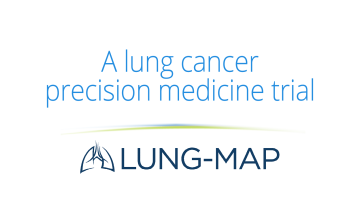SWOG Actively Studies Costs of Cancer Care
Back in 2012, Dr. Veena Shankaran received a Charles A. Coltman, Jr. Fellowship Award from our Hope Foundation. A new faculty member at Fred Hutch, Dr. Shankaran was trained in health care economics. She was, and is, intensely interested in the personal and societal impacts of the cost of cancer care. How heavy is the treatment-related financial burden on patients? How much does cancer treatment impact the overall cost of health care?
Dr. Shankaran took her $100,000 Hope grant and used it to develop an idea that is, today, the first study of financial toxicity in our National Clinical Trials Network (NCTN).
S1417CD is testing a multi-part questionnaire to see if it can effectively assess just how significant the financial burden of cancer treatment is for patients with metastatic colorectal cancer. (Gastrointestinal cancer being Dr. Shankaran’s specialty, and all).
Newly-diagnosed patients take the questionnaire upon enrollment in S1417CD, then they repeat at three, six, nine and 12 months into treatment. They’ll answer questions about assets, debt, spending, stress level and quality of life. Dr. Shankaran and her team will also pull patients’ credit reports at the start and finish of the trial. The aim is to understand how many patients are adversely effected by the costs of cancer treatment and how much – physically, emotionally and financially. Because financial toxicity is such a new field in cancer research, this baseline information is critical for crafting, and studying, potential solutions.
S1417CD was activated in April, and has just accrued its first patients. The goal is to enroll 330 in three years, and 11 have signed on thus far. Dr. Shankaran knows the trial is potentially a tough sell. Patients who just got diagnosed with cancer, and are making early treatment decisions, may not want to deal with more medical forms. But she is optimistic. And she should be!
Financial toxicity is a major issue for cancer patients and physicians alike. The topic was featured at 2016 sessions of ASCO and ESMO and is appearing in the pages of The New England Journal of Medicine, JAMA Oncology, Journal of the National Cancer Institute, The ASCO Post, and more. Financial toxicity is burning up the Patient Advocates in Research listserv. On Twitter, it has its own hashtag - #CancerCosts.
So this trial, hatched four years ago by a young SWOG investigator, is blossoming at just the right time. Dr. Shankaran hopes that the next generation of trials on the financial impact of cancer treatment will test solutions. She is also eager to work with her peers in the NCTN. She reports that Dr. Rena Conti of the University of Chicago is working hard on a financial toxicity study soon to launch with the Alliance.
This trial is truly a triumph for Dr. Shankaran – and for SWOG and The Hope Foundation. Hope funds seeded an innovative and impactful trial, and Dr. Shankaran was able to leverage her background and training into a $250,000 award from the Conquer Cancer Foundation of ASCO. And two giants of SWOG, cancer care delivery co-chairs Dr. Dawn Hershman of Columbia University and Dr. Scott Ramsey of Fred Hutch, provided critical mentorship. This support – money and mentoring – remain some of the best ways SWOG helps move cancer research forward.
This Thanksgiving season, I am grateful to Dr. Shankaran and all our young investigators – and everyone in SWOG who supports them. They give me hope that good days are ahead, and much good work. I’ll take a break from Front Line next week to celebrate with family. See you back here in December. And Happy Thanksgiving.
Other Recent Stories



